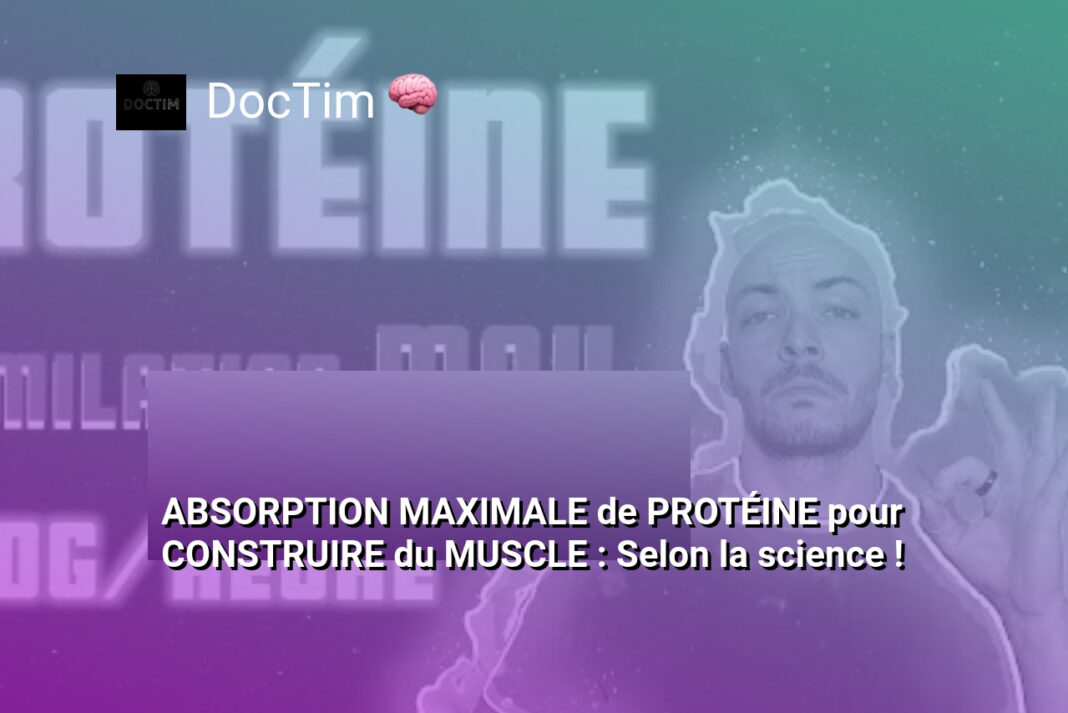The Bottom Line:
- Fasting can provide two key benefits: calorie restriction and bowel rest, which can be particularly helpful for individuals with gastrointestinal challenges.
- However, fasting may not be the best approach for older individuals or those struggling to build muscle, as it can disrupt the delicate balance between muscle protein synthesis and catabolism, which becomes more difficult to regulate with age.
- As individuals age, they need to be more cautious about fasting, as it can lead to the loss of skeletal tissue if they are not actively training to protect it.
- The benefits and drawbacks of fasting can vary depending on an individual’s age, health status, and fitness goals, so it’s important to consider these factors when deciding whether to incorporate fasting into one’s lifestyle.
- Overall, while fasting can provide certain health benefits, it may not be the optimal approach for everyone, and it’s essential to carefully evaluate one’s personal circumstances before adopting a fasting regimen.
Calorie Restriction
Metabolic Advantages of Calorie Restriction
Calorie restriction, a key aspect of fasting, has been shown to provide significant metabolic advantages. By reducing overall caloric intake, the body is forced to adapt and optimize its energy utilization, leading to a range of beneficial physiological changes. One of the primary benefits is the enhancement of insulin sensitivity, which can help regulate blood sugar levels and reduce the risk of conditions like type 2 diabetes. Additionally, calorie restriction has been linked to a reduction in inflammation, a key driver of many chronic diseases.
Cellular Rejuvenation and Autophagy
Another remarkable effect of calorie restriction is its ability to stimulate a process called autophagy. Autophagy is a natural cellular mechanism in which damaged or dysfunctional components are broken down and recycled, allowing for the regeneration of healthier cells. This process of cellular rejuvenation can have far-reaching implications, potentially contributing to improved organ function, reduced risk of neurodegenerative diseases, and even enhanced longevity.
Optimizing Mitochondrial Function
Calorie restriction has also been shown to have a positive impact on mitochondrial function, the powerhouses of our cells. By reducing caloric intake, the body is prompted to become more efficient in its energy production, leading to enhanced mitochondrial biogenesis and improved mitochondrial function. This optimization of mitochondrial health can have downstream benefits, such as increased energy levels, better cellular function, and potentially even improved cognitive performance.
Bowel Rest
Gastrointestinal Benefits of Fasting
Fasting can provide significant benefits for individuals with gastrointestinal (GI) challenges. During a fasting period, the digestive system is given a much-needed break from the constant processing of food. This “bowel rest” can be particularly advantageous for those dealing with various GI conditions, as it allows the gut to heal and recover.
Reduced Inflammation and Irritation
One of the primary benefits of bowel rest during fasting is the reduction of inflammation and irritation within the GI tract. When the digestive system is constantly working to break down and process food, it can lead to increased inflammation and irritation, which can exacerbate symptoms of conditions like irritable bowel syndrome (IBS), Crohn’s disease, or ulcerative colitis. By taking a break from the digestive process, the gut can have the opportunity to heal and reduce this inflammation, potentially leading to improved symptom management.
Improved Nutrient Absorption
In addition to reducing inflammation, the bowel rest experienced during fasting can also enhance nutrient absorption. When the digestive system is not constantly occupied with digesting food, it can focus on more efficiently absorbing the essential nutrients from the food consumed during the eating window. This can be particularly beneficial for individuals with malabsorption issues or those who struggle to maintain optimal nutrient levels due to their GI condition.
By providing the digestive system with a much-needed break, fasting can help to alleviate symptoms, reduce inflammation, and improve nutrient absorption for individuals dealing with various gastrointestinal challenges. This can be a valuable tool in managing and potentially improving the overall health and well-being of those with GI-related concerns.
Fasting and Muscle Protein Synthesis
The Impact of Fasting on Muscle Protein Synthesis
Fasting can have a significant impact on muscle protein synthesis, which is the process of building and repairing muscle tissue. During fasting, the body enters a catabolic state, where it breaks down muscle proteins for energy. This can lead to a decrease in muscle mass, particularly in older individuals or those who are already struggling to maintain or build muscle.
Balancing Muscle Protein Synthesis and Catabolism
As individuals age, it becomes more challenging to regulate the balance between muscle protein synthesis and catabolism. The body is constantly going through these two processes, with the anabolic (building) and catabolic (breaking down) phases. When fasting is added to the equation, especially during periods of inactivity or reduced training, the risk of muscle loss increases.
Considerations for Older Individuals and Muscle Maintenance
For older individuals or those who are already having difficulty putting on muscle, fasting may not be the best approach. The need to maintain and protect skeletal muscle tissue becomes more critical as we age, and extended periods of fasting can disrupt this delicate balance. In these cases, it may be more beneficial to focus on strategies that support muscle protein synthesis, such as resistance training, adequate protein intake, and potentially supplementation.
Balancing Anabolic and Catabolic Processes
The Delicate Balance: Maintaining Muscle Mass During Fasting
As individuals age, the balance between anabolic and catabolic processes becomes increasingly crucial. Anabolic processes are those that build and repair tissues, while catabolic processes break down and recycle cellular components. This delicate equilibrium is essential for maintaining muscle mass and overall health, particularly during periods of fasting or calorie restriction.
Preserving Muscle Integrity
During fasting or extended periods without adequate nutrient intake, the body may enter a catabolic state, where it begins to break down muscle tissue to meet its energy needs. This can be particularly problematic for older adults, who may already be struggling to maintain their muscle mass due to age-related sarcopenia. To counteract this, it is essential to find ways to support the anabolic processes and ensure that muscle protein synthesis is not compromised.
Strategies for Balancing Anabolism and Catabolism
One approach to maintaining this balance is through strategic timing of nutrient intake and exercise. For example, incorporating resistance training or high-intensity interval training (HIIT) during fasting periods can help stimulate muscle protein synthesis and prevent excessive muscle loss. Additionally, ensuring adequate protein intake, particularly around training sessions or during the refeeding phase, can help support the anabolic processes and promote muscle growth and repair.
It is also important to consider the individual’s overall health status, activity level, and goals when determining the appropriate fasting protocol. For some older adults or those struggling to build or maintain muscle mass, extended fasting periods may not be the best approach, as the potential benefits of calorie restriction may be outweighed by the risk of excessive muscle loss.
In such cases, a more moderate approach, such as time-restricted feeding or intermittent fasting, may be more suitable. This can allow for the benefits of fasting, such as improved metabolic health and reduced inflammation, while still providing the necessary nutrients and opportunities for muscle-building activities.
Recommendations for Older Individuals
Maintaining Muscle Mass and Bone Health
As individuals age, it becomes increasingly important to prioritize muscle protein synthesis and bone health. Fasting, while beneficial in certain contexts, can pose challenges for older adults. During extended periods of fasting, the body may enter a catabolic state, where muscle and bone tissue can be broken down for energy. This can lead to a loss of lean muscle mass and decreased bone density, which can be particularly detrimental for older individuals.
Balancing Anabolic and Catabolic Processes
As we age, the delicate balance between anabolic (muscle-building) and catabolic (muscle-breakdown) processes becomes more difficult to regulate. Older adults often experience a natural decline in muscle mass and strength, a condition known as sarcopenia. Fasting, if not carefully managed, can exacerbate this imbalance and accelerate the loss of muscle and bone tissue.
Individualized Approach for Older Adults
For older individuals, a more personalized approach to fasting and calorie restriction may be necessary. It is essential to consider factors such as overall health, nutritional status, physical activity levels, and any underlying medical conditions. In some cases, a shorter fasting window or a more moderate calorie restriction may be more appropriate to maintain muscle mass, bone health, and overall well-being. Consulting with a healthcare professional or a registered dietitian can help older adults develop a safe and effective fasting or calorie restriction plan that addresses their unique needs and concerns.





